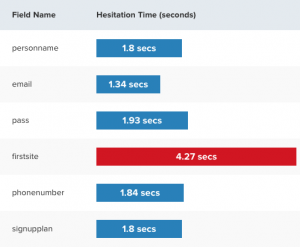— January 12, 2018
Want to be productive? Learn how to limit distraction first.
Distraction and productivity are mutually exclusive. The latter is all about focusing on what is important and holding that focus until the work is done. Distraction, in its turn, is what agitates our minds and makes it hardly possible to concentrate on the task at hand.
In light of this, the only way to become efficient is to learn how to withstand distractions. And this is where willpower comes into play.
The Ugly Truth About Distractions
Believe it or not, people are addicted to distractions.
The rational voice in your head might be telling you that distractions are not helpful at all. They interfere with your work, education, personal development, etc. Despite all this, we fall for distractions over and over again.
It takes seconds to get distracted and minutes to realize it’s happened.
One moment you reach for a laptop to read the email from your boss, the next you find yourself buying another pair of yoga pants on AliExpress. You grab your phone to call to your mom, but then notice a push notification from Instagram and end up scrolling the feed for half an hour.
Raise your hand if this sounds familiar. Don’t be ashamed. We all have been there.
The scenario might be different, but the outcome is always the same. You have a certain task in mind but get distracted and waste time doing things that were not a part of your initial plan. That’s how time gets wasted, and that’s how distractions work.
It All Comes Down to Chemicals
To understand why distractions are so hard to control, you need to learn two facts about how your brain works.
First, our brains are wired to crave novelty. They are designed to be attracted to all things that are new. That’s why anything that looks even slightly different or unusual is bound to catch our attention (and why most of us find it hard to stay focused while working on routine tasks).
In this scheme, our major task at hand is considered a boring routine, while each distraction is a source of novelty. Since our brains always choose stimulation over boredom, no wonder we get distracted so easily. Our brains are designed to seek newness and when it’s found (for example, when you get distracted from your report by a message from a friend), the level of dopamine—a happiness-reward neurochemical—increases. When this happens, we feel excitement and crave more. A distraction-addiction loop is created.
No matter what stands behind a distraction, it boasts at least a minimal portion of novelty compared to the routine task we have at hand. No wonder our brain is happy to shift attention with the first opportunity whether it be a funny quiz, a quick chat with a colleague, or one more article on BuzzFeed.
Second, our brains prefer instant gratification. Let’s say you need to finish a financial report by tomorrow, and you know if you manage to do this, you will get a long-awaited promotion. Obviously, this significant gratification keeps you motivated, so you work hard to get it done on time.
All of a sudden, a good friend of yours gives you a call and asks you out. You realize there is no way to accept the invitation and still finish the report in time. Should you take the promotion or a night out? The rational part of you will always choose the first, but guess what your brain would pick? Going out equals instant gratification while working on the report means a possibility of reward one day in the future.
See? That’s why distractions are so powerful.
How to Limit Distraction Using Willpower (And Succeed)
The good news is that the final choice is always up to you. Whether you let distractions take over or stay committed to what you are supposed to do and succeed, it’s all up to you.
Of course, sometimes you might feel inclined to listen to your brain’s suggestions (“forget the report, have some fun”), but something as simple as willpower will help you stay committed to your long-term goals and finish the race as a champion.
Simply put, willpower is your ability to get things done.
People with a strong willpower have no trouble maintaining a healthy diet, going to the gym regularly, and withstanding distractions no matter how persistent they are. Those with weak willpower can still do all mentioned above but with more effort and less success.
The good news is that willpower can be strengthened.
It’s important to see your willpower as a mental muscle that gets stronger each time you train it and becomes weak if you fail to use it for a long time. By strengthening your willpower, you will become resistant to distractions thus increasing your productivity and quality of life.
Working on your willpower, however, takes time.
That is why we prepared the list of simple tips to help you withstand distractions while working on your willpower muscle (why not try some of them as a part of your New Year’s Resolution?) :
-
Get Rid of All Obvious Distractions

Most modern people have the same distractions—push notifications, social networks, annoying online ads, you name it. The least you can do to improve productivity is to limit the number of obvious distractions around you. Disable push notifications, log out from social network accounts when you know you need to focus, install an ad blocker to get rid of disturbing online ads. It’s fairly simple but works wonders.
-
Take Short, Intentional Breaks

When your brain is tired, you’re more likely to become distracted. If you’ve been working on a monotonous task for hours without giving yourself a break, chances are your brain is overworked. No wonder it will get distracted if given half a chance. Your job here is to outsmart your brain; give it regular breaks of at least 5 minutes.
-
Practice Mindfulness

No, mindfulness doesn’t mean sitting cross-legged and trying to suppress your thoughts. Consider mindfulness as an approach to living rather than a boring exercise you’re obliged to do daily. Essentially, mindfulness is about paying undistracted attention to the present moment.
What does it have to do with distractions?
When you are fully present, you recognize the moment of distraction, which means you can make a conscious decision whether to get distracted or not. When you realize you are distracted, ask yourself: Do I really want to let this interfere with what I’m doing? If the answer is no, keep doing what you’re doing.
-
Go From Multitasking to Switching

Multitasking is not real.
What happens when we feel like we are doing multiple things at a time, is that our brain switches its attention very quickly from one task to another. In other words, what we call multitasking is actually a continuous process of distraction. The bad thing about multitasking is that it makes us tired faster. In this state of mind, we become more vulnerable to distractions.
The solution?
Instead of trying to handle a number of tasks at once, choose a few of them and work on each for up to 2 hours at a time. After that, take a break, then switch to the next task. Rinse and repeat until there has been progress on all tasks. This way, you will prevent your brain from being completely bored, while still managing multiple tasks.
-
Keep Your Long-Term Goals in Mind

As we’ve mentioned earlier, our brain prefers instant gratification over the long-term prize. It is wired to choose a double-chocolate cupcake now over a perfect body 6 months from now, and to pick 5 minutes of watching funny videos at this moment over finishing a report and feeling the joy of accomplishment tomorrow.
Obviously, the approach your brain insists on won’t take you far. There are two things you can do about it.
First, strengthen your willpower and don’t let the chemicals in your body make decisions for you. Second, outsmart your own brain by inventing your own system of gratification. Make yourself a cup of hot chocolate as a reward for 30 minutes of focusing on your major task or buy yourself that nice pair of sneakers as a reward for jogging 5 days in a row.
Things to Remember
Distractions are destructive. They are great for killing time but never helpful for living a meaningful life.
Distractions are everywhere. They take different forms. They are people, phone calls, push notifications, emails, online ads, video games, TV series, you name it. They take hours of your time only to leave you mad at yourself for not accomplishing your daily goals.
Don’t let distractions take over your life, fight back. Each time you feel it coming, ask yourself a simple question: Will it make me feel better if I let this thing distract me?
If the answer is negative, appeal to your willpower and keep doing what you are supposed to. This might be difficult at first, but this new attitude will quickly become your second nature. Give it a try.
Business & Finance Articles on Business 2 Community
(61)




